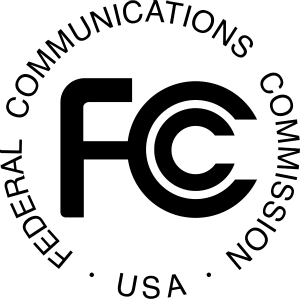
The FCC had been relatively quiet on the pirate radio front over the last few months. That all changed Thursday. The Commission proposed a $453,015 fine against Gerlens Cesar, operator of Radio TeleBoston. It’s the largest fine ever proposed by the FCC against a pirate. The Commission says Cesar used three transmitters for his illegal operation.
FCC Chairman Ajit Pai said the harms of unlicensed radio broadcasting are serious. “Pirate stations interfere with licensed stations—whose owners have invested time and money in providing lawful service to the public—and can also cause interference to critical public safety systems.” Pai even recorded a vidoe about the two big fines the Commission proposed Thursday Watch it HERE.
Cesar apparently simulcasts Radio TeleBoston on three unauthorized transmitters on two different frequencies. His operation thus had the potential to cause interference in various locations in and around Boston and at different channels on the FM dial. As a result of the scale of this operation, its potential impacts, and its continuous nature, the Commission has proposed the maximum penalty amount for all three transmitters.
The FCC received complaints from residents of Boston and Randolph, Massachusetts, of an illegal station operating at both 90.1 and 92.1 MHz. One of those complaints identified Cesar, owner of GC Computer, as the operator of Radio TeleBoston. FCC Enforcement Bureau field agents were able to locate the transmitters and determine that they far exceeded the allowable power level for unlicensed broadcasting. The Enforcement Bureau issued Cesar multiple written notices that his conduct was illegal and had to cease. Cesar nonetheless continued to broadcast Radio TeleBoston from multiple transmitters and frequencies, none of which were licensed, resulting in today’s proposed fine.






Most of these pirate busts have a common thread: The illegal stations were rather small operations that served a racial or ethnic community that is poorly served or unserved by the licensed stations. Perhaps Congress should revisit the Telecommunications Act of 1996 to get rid of the auctions and require that anyone proposing to build or acquire a station should adequately serve its community of license. Auctions bring in lots of dollars to the U.S. Treasury, but they ensure that only those with deep pockets need apply.
Some months ago, the FCC busted four pirates in Hazleton, Pennsylvania, a small city that is part of the Scranton/Wilkes-Barre market. The population of Hazleton is 30% Hispanic. All four pirates were broadcasting in Spanish. Not a single licensed station in this market serves the Spanish-speaking community. Wilkes-Barre and Scranton also have significant Latino populations.
Boston once had a pirate called “106-1 The Touch”, which served the African-American community from the Dorchester section of the city. Programming on The Touch conveyed a positive message for that community’s youth and both the mayor of Boston and the governor of Massachusetts appeared on the station. But since this station was not licensed, the FCC shut it down. What occupies 106.1 today? A translator, which simply duplicates another station.
The main studio rules should be reinstated as well and noncommercial stations should be required to serve their communities of license, putting an end to the greedy octopus of EMF and similar operations.
The FCC doesn’t care about public service. It’s about serving their huge corporate clients and doing what they advocate as well. The little youtube video of Pai has all comments turned off. He knows allot of people would fill it up with hate comments. I find it funny that all news regarding pirate radio and busts go totally non existent for months on end as the PIRATE Act the FCC and news outlets were gloating about dies and becomes dormant–again. Kinda thier way of putting their foots in their own mouths. The news about these fines and bust never reflect what they actually collect. If these pirates had $453,015 to actually pay i’m sure they would had already spent it on a licensed station.
Come to this country and adapt to our laws, culture and language. Don’t try to override them with your ignorance and lawlessness. Then properly and legally join our civilization and we will embrace you with open arms, just as our forefathers did. But come in here like banditos; get what you deserve.
Streamlining the process has little to do with difficulties in acquiring a station. It has everything to do with allocations of frequencies to communities. Allocations are limited to prevent overlap and interference to existing stations.
If the FCC would streamline getting a legal license to begin with, these Pirates would be no more. The license app freeze and all is hurting the ability of some real good radio from ever being heard.
Probably Chinese transmitters from ebay. Wonder what format he was broadcasting? Now what I want to see is if this fine is actually collected. Seems there was one other in this dollar range sometime back. Wonder if it was collected?